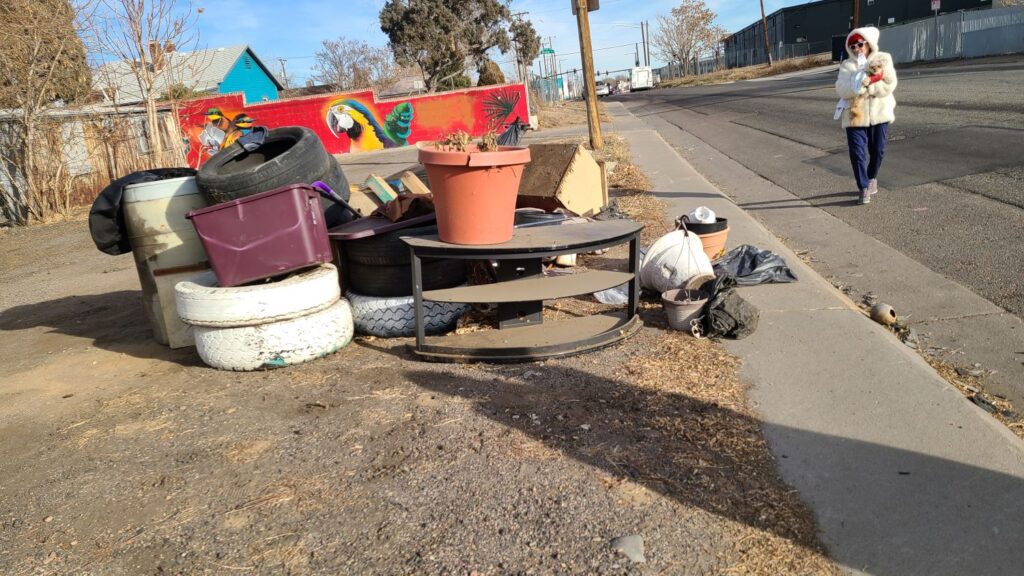By Eric Heinz
There are multiple properties owned by the city of Denver and the Colorado Department of Transportation that two sectors of the GES Coalition would like to repurpose for either green spaces or cheaper housing.
Tierra Verdes
A group of residents looking to beautify and utilize city-owned parcels in the GES neighborhoods, Tierra Verdes is focused on a couple parcels along 48th Avenue between Steele and Milwaukee streets. There are, however, many other parcels that are owned by the city that have not been utilized, and Tierra Verdes is hoping to expand its scope in the future. The parcels are about 2,000 square feet or so.

“Our plan is to work with our neighbors to pressure the city to turn over the land to the community under the idea that we can organize a vision together for what we want to see there,” group member Mercedes González said through a Spanish translator.
Some of the ideas for the lots include using them as community gardens that would have fruit-bearing trees from which the public could harvest. Tierra Verdes has run into some peculiar issues while researching at least one of the lots that is owned by the city.
“The team here went and did some initial investigations, and … the other city lot at 48th and St. Paul and Milwaukee, we went and spoke to the neighbor,” group member Virginia Calderon said through a Spanish translator. “About 10 years ago, they thought they had purchased the lot from the city. We’re concerned this neighbor did purchase it from the city or someone impersonated the city and scammed him out of money.”
Additionally, the soil on some of the lots the group is studying have uninhabitable soil.
Coalition director Nola Miguel said the coalition has a budget of about $80,000 to do soil remediation on lots where garbage has piled up. In some cases, because the land isn’t owned or maintained by a resident, people have left used tires, furniture and other items on the lots.
Calderon said Denver has owned some of the lots for decades. City records show one of the lots, which is vacant, at 48th Avenue between Milwaukee and St. Paul streets was left to the city in 1950. The group members said they hope they might be able to pay neighbors near the lots they acquire to maintain them.
They also want to see more sidewalks, particularly along 48th Avenue, as people tend to have to walk in the middle of the street. Funding for Tierra Verdes came through a grant via a settlement a few years ago with Suncor Refinery.
Tierra Colectiva
Recently, several remnant parcels from the Central I-70 project were awarded $1.55 million, which is slated for Habitat for Humanity. Miguel said they will work with Habitat on the housing.
The housing arm of the coalition, Tierra Colectiva recently added five new modular homes to their stock of 11 total homes. Some of the lots identified on the map are small slivers and others are as large as 50,000 square feet, according to city records.
Miguel said because they’ll have to get the federal funding for the excess lots from the I-70 project, it could be a year or two before homes are on the land.
“The majority of the areas that are large enough for future development were where ramps (Steele Street and Brighton Boulevard) and industrial properties, including one CDOT maintenance shed, were located,” said Stacia Sellers, a spokesperson for CDOT. “Many of the remnant parcels are primarily very small slivers of land and will be used for additional trees and landscaping in the neighborhood.”


Be the first to comment